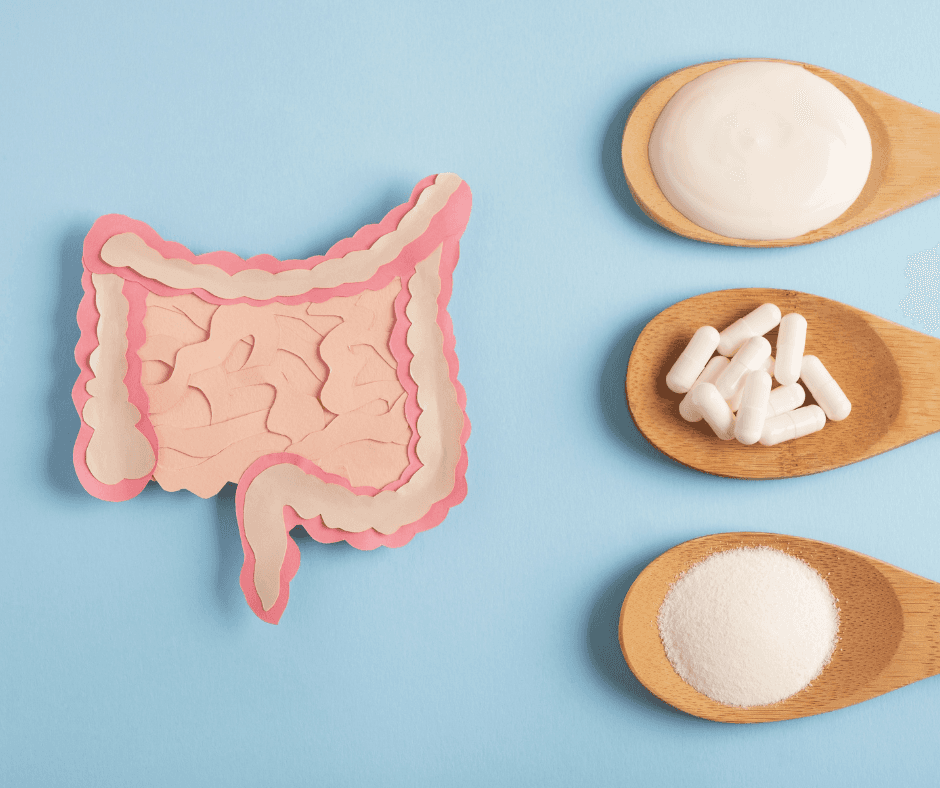The effects of sugar on the body
The effects of sugar on the body
The effects of sugar on the body
Mar 27, 2024
Mar 27, 2024

Descubra como a ingestão de açúcar afeta o seu corpo e entenda os impactos que pode ter na sua saúde. Aprenda a reconhecer e moderar o consumo de açúcar para o seu bem-estar.
Descubra como a ingestão de açúcar afeta o seu corpo e entenda os impactos que pode ter na sua saúde. Aprenda a reconhecer e moderar o consumo de açúcar para o seu bem-estar.
Descubra como a ingestão de açúcar afeta o seu corpo e entenda os impactos que pode ter na sua saúde. Aprenda a reconhecer e moderar o consumo de açúcar para o seu bem-estar.
Sugar is a ubiquitous ingredient in contemporary diet, found in most of the products we consume daily. However, excessive sugar consumption can be highly detrimental to health. This article examines the effects of sugar on the body and offers strategies to mitigate its impacts, promoting a healthier life.
Sugar and Energy: A Love-Hate Relationship
Sugar is rapidly absorbed and converted into glucose, providing an immediate burst of energy. This explains the frequent craving for sugary foods when seeking a quick energy boost. However, this spike is generally followed by a sharp drop, resulting in cycles of highs and lows in energy. Such energy instability negatively impacts mood and productivity, often encouraging additional sugar intake in search of more energy and perpetuating a vicious cycle.
Additionally, unrestrained sugar consumption is linked to fat accumulation, particularly in the abdominal region, increasing the risk of cardiovascular diseases and other metabolic issues. In the long term, it contributes to elevated risk of certain types of cancer, premature aging, and the emergence of degenerative diseases.
Therefore, controlling sugar intake is essential and prioritizing more natural sources of carbohydrates, such as fruits and whole grains. These foods provide energy in a more balanced and sustainable manner, reducing the peaks and valleys that so adversely affect physical and mental well-being.
Sugar and Body Weight: Understanding the Risk of Obesity
In addition to simply increasing the caloric content of the diet, added sugar negatively influences appetite-regulating hormones, such as leptin and ghrelin, altering the perception of hunger and satiety. This hormonal imbalance can lead to a continuous increase in food consumption and, consequently, weight gain.
Furthermore, diets high in sugar promote an inflammatory response in the body, which not only contributes to fat accumulation, but also exacerbates the risk of developing chronic metabolic diseases.
The Impact of Sugar on Oral Health
In addition to increasing the risk of cavities, frequent sugar consumption contributes to the formation of plaque, a sticky layer of bacteria that accumulates on the teeth and gums. Plaque is the main factor for gingivitis (inflammation of the gums) that, if left untreated, can progress to periodontitis, a more serious condition that affects the tissues and bones supporting the teeth.
The impact of sugar on oral health also includes bad breath and a reduction in the aesthetic quality of the smile, factors that can significantly affect self-esteem and social interactions. Therefore, it is recommended to reduce sugar intake and maintain a rigorous oral hygiene routine, including brushing after meals, daily use of dental floss, and regular visits to the dentist for exams and professional cleanings. [Replacing sugary drinks with water](https://msdh.ms.gov/page/43,2809,151,816.html#:~:text=Soft drink consumption is one,that contribute to tooth decay.) and opting for [fiber-rich](https://www.urmc.rochester.edu/encyclopedia/content.aspx?contenttypeid=1&contentid=4062#:~:text=Foods with fiber help keep,against cavities and gum disease.) and low-sugar snacks are additional measures that promote oral health.
Educating about the harmful effects of sugar and proper oral hygiene practices from childhood are essential to prevent long-term dental problems and maintain a healthy smile throughout life.
Sugar Dependence: Reality or Myth?
The neurological response to sugar resembles that observed with addictive substances, leading many experts to question whether sugar can cause a "dependence". Frequent exposure to high levels of sugar reinforces the behavior of seeking and consuming these foods, establishing a pattern that is difficult to break.
This cycle is particularly problematic because it increases tolerance to the pleasure provided by sugar, requiring larger quantities over time to achieve the same feeling of satisfaction or relief. This characteristic is typical of addictive behaviors, in which the need to consume a substance increases over time to obtain the same effect.
The abrupt withdrawal of sugar from the diet of people accustomed to consuming large quantities tends to result in withdrawal symptoms, such as discomfort, irritability, and headaches, common symptoms in chemical substance dependencies. These can make it difficult to reduce sugar consumption, despite the health benefits.
Therefore, it is important to consider the potentially addictive effects of sugar and take prudent measures to moderate its consumption.
Tips for Reducing Sugar Consumption and Healthy Alternatives
To reduce sugar consumption, developing the habit of reading nutrition labels and identifying added sugars in processed foods is essential. As a replacement, opt for fruits, which provide fiber and essential nutrients, and spices like cinnamon and vanilla to add sweet flavor without extra calories.
When exploring healthier alternatives to refined sugar, try natural sweeteners, such as stevia, erythritol, xylitol, etc. These options offer a lower intake of calories and bring additional health benefits, such as better blood sugar control and improved oral health. However, as beneficial as they may be, moderation in their consumption remains imperative.
In addition, natural extracts, such as pure vanilla extract or almond essence, can enrich the flavor of foods without adding sugar, being especially useful in bread, smoothie, and dessert recipes.
Despite providing an immediate source of energy, excessive sugar consumption is associated with a range of health issues, including obesity, chronic diseases, and deteriorating oral health. Therefore, it is essential to adopt a conscious and moderate approach, integrating healthy alternatives and adjusting eating habits to promote overall well-being.
Sugar is a ubiquitous ingredient in contemporary diet, found in most of the products we consume daily. However, excessive sugar consumption can be highly detrimental to health. This article examines the effects of sugar on the body and offers strategies to mitigate its impacts, promoting a healthier life.
Sugar and Energy: A Love-Hate Relationship
Sugar is rapidly absorbed and converted into glucose, providing an immediate burst of energy. This explains the frequent craving for sugary foods when seeking a quick energy boost. However, this spike is generally followed by a sharp drop, resulting in cycles of highs and lows in energy. Such energy instability negatively impacts mood and productivity, often encouraging additional sugar intake in search of more energy and perpetuating a vicious cycle.
Additionally, unrestrained sugar consumption is linked to fat accumulation, particularly in the abdominal region, increasing the risk of cardiovascular diseases and other metabolic issues. In the long term, it contributes to elevated risk of certain types of cancer, premature aging, and the emergence of degenerative diseases.
Therefore, controlling sugar intake is essential and prioritizing more natural sources of carbohydrates, such as fruits and whole grains. These foods provide energy in a more balanced and sustainable manner, reducing the peaks and valleys that so adversely affect physical and mental well-being.
Sugar and Body Weight: Understanding the Risk of Obesity
In addition to simply increasing the caloric content of the diet, added sugar negatively influences appetite-regulating hormones, such as leptin and ghrelin, altering the perception of hunger and satiety. This hormonal imbalance can lead to a continuous increase in food consumption and, consequently, weight gain.
Furthermore, diets high in sugar promote an inflammatory response in the body, which not only contributes to fat accumulation, but also exacerbates the risk of developing chronic metabolic diseases.
The Impact of Sugar on Oral Health
In addition to increasing the risk of cavities, frequent sugar consumption contributes to the formation of plaque, a sticky layer of bacteria that accumulates on the teeth and gums. Plaque is the main factor for gingivitis (inflammation of the gums) that, if left untreated, can progress to periodontitis, a more serious condition that affects the tissues and bones supporting the teeth.
The impact of sugar on oral health also includes bad breath and a reduction in the aesthetic quality of the smile, factors that can significantly affect self-esteem and social interactions. Therefore, it is recommended to reduce sugar intake and maintain a rigorous oral hygiene routine, including brushing after meals, daily use of dental floss, and regular visits to the dentist for exams and professional cleanings. [Replacing sugary drinks with water](https://msdh.ms.gov/page/43,2809,151,816.html#:~:text=Soft drink consumption is one,that contribute to tooth decay.) and opting for [fiber-rich](https://www.urmc.rochester.edu/encyclopedia/content.aspx?contenttypeid=1&contentid=4062#:~:text=Foods with fiber help keep,against cavities and gum disease.) and low-sugar snacks are additional measures that promote oral health.
Educating about the harmful effects of sugar and proper oral hygiene practices from childhood are essential to prevent long-term dental problems and maintain a healthy smile throughout life.
Sugar Dependence: Reality or Myth?
The neurological response to sugar resembles that observed with addictive substances, leading many experts to question whether sugar can cause a "dependence". Frequent exposure to high levels of sugar reinforces the behavior of seeking and consuming these foods, establishing a pattern that is difficult to break.
This cycle is particularly problematic because it increases tolerance to the pleasure provided by sugar, requiring larger quantities over time to achieve the same feeling of satisfaction or relief. This characteristic is typical of addictive behaviors, in which the need to consume a substance increases over time to obtain the same effect.
The abrupt withdrawal of sugar from the diet of people accustomed to consuming large quantities tends to result in withdrawal symptoms, such as discomfort, irritability, and headaches, common symptoms in chemical substance dependencies. These can make it difficult to reduce sugar consumption, despite the health benefits.
Therefore, it is important to consider the potentially addictive effects of sugar and take prudent measures to moderate its consumption.
Tips for Reducing Sugar Consumption and Healthy Alternatives
To reduce sugar consumption, developing the habit of reading nutrition labels and identifying added sugars in processed foods is essential. As a replacement, opt for fruits, which provide fiber and essential nutrients, and spices like cinnamon and vanilla to add sweet flavor without extra calories.
When exploring healthier alternatives to refined sugar, try natural sweeteners, such as stevia, erythritol, xylitol, etc. These options offer a lower intake of calories and bring additional health benefits, such as better blood sugar control and improved oral health. However, as beneficial as they may be, moderation in their consumption remains imperative.
In addition, natural extracts, such as pure vanilla extract or almond essence, can enrich the flavor of foods without adding sugar, being especially useful in bread, smoothie, and dessert recipes.
Despite providing an immediate source of energy, excessive sugar consumption is associated with a range of health issues, including obesity, chronic diseases, and deteriorating oral health. Therefore, it is essential to adopt a conscious and moderate approach, integrating healthy alternatives and adjusting eating habits to promote overall well-being.
Sugar is a ubiquitous ingredient in contemporary diet, found in most of the products we consume daily. However, excessive sugar consumption can be highly detrimental to health. This article examines the effects of sugar on the body and offers strategies to mitigate its impacts, promoting a healthier life.
Sugar and Energy: A Love-Hate Relationship
Sugar is rapidly absorbed and converted into glucose, providing an immediate burst of energy. This explains the frequent craving for sugary foods when seeking a quick energy boost. However, this spike is generally followed by a sharp drop, resulting in cycles of highs and lows in energy. Such energy instability negatively impacts mood and productivity, often encouraging additional sugar intake in search of more energy and perpetuating a vicious cycle.
Additionally, unrestrained sugar consumption is linked to fat accumulation, particularly in the abdominal region, increasing the risk of cardiovascular diseases and other metabolic issues. In the long term, it contributes to elevated risk of certain types of cancer, premature aging, and the emergence of degenerative diseases.
Therefore, controlling sugar intake is essential and prioritizing more natural sources of carbohydrates, such as fruits and whole grains. These foods provide energy in a more balanced and sustainable manner, reducing the peaks and valleys that so adversely affect physical and mental well-being.
Sugar and Body Weight: Understanding the Risk of Obesity
In addition to simply increasing the caloric content of the diet, added sugar negatively influences appetite-regulating hormones, such as leptin and ghrelin, altering the perception of hunger and satiety. This hormonal imbalance can lead to a continuous increase in food consumption and, consequently, weight gain.
Furthermore, diets high in sugar promote an inflammatory response in the body, which not only contributes to fat accumulation, but also exacerbates the risk of developing chronic metabolic diseases.
The Impact of Sugar on Oral Health
In addition to increasing the risk of cavities, frequent sugar consumption contributes to the formation of plaque, a sticky layer of bacteria that accumulates on the teeth and gums. Plaque is the main factor for gingivitis (inflammation of the gums) that, if left untreated, can progress to periodontitis, a more serious condition that affects the tissues and bones supporting the teeth.
The impact of sugar on oral health also includes bad breath and a reduction in the aesthetic quality of the smile, factors that can significantly affect self-esteem and social interactions. Therefore, it is recommended to reduce sugar intake and maintain a rigorous oral hygiene routine, including brushing after meals, daily use of dental floss, and regular visits to the dentist for exams and professional cleanings. [Replacing sugary drinks with water](https://msdh.ms.gov/page/43,2809,151,816.html#:~:text=Soft drink consumption is one,that contribute to tooth decay.) and opting for [fiber-rich](https://www.urmc.rochester.edu/encyclopedia/content.aspx?contenttypeid=1&contentid=4062#:~:text=Foods with fiber help keep,against cavities and gum disease.) and low-sugar snacks are additional measures that promote oral health.
Educating about the harmful effects of sugar and proper oral hygiene practices from childhood are essential to prevent long-term dental problems and maintain a healthy smile throughout life.
Sugar Dependence: Reality or Myth?
The neurological response to sugar resembles that observed with addictive substances, leading many experts to question whether sugar can cause a "dependence". Frequent exposure to high levels of sugar reinforces the behavior of seeking and consuming these foods, establishing a pattern that is difficult to break.
This cycle is particularly problematic because it increases tolerance to the pleasure provided by sugar, requiring larger quantities over time to achieve the same feeling of satisfaction or relief. This characteristic is typical of addictive behaviors, in which the need to consume a substance increases over time to obtain the same effect.
The abrupt withdrawal of sugar from the diet of people accustomed to consuming large quantities tends to result in withdrawal symptoms, such as discomfort, irritability, and headaches, common symptoms in chemical substance dependencies. These can make it difficult to reduce sugar consumption, despite the health benefits.
Therefore, it is important to consider the potentially addictive effects of sugar and take prudent measures to moderate its consumption.
Tips for Reducing Sugar Consumption and Healthy Alternatives
To reduce sugar consumption, developing the habit of reading nutrition labels and identifying added sugars in processed foods is essential. As a replacement, opt for fruits, which provide fiber and essential nutrients, and spices like cinnamon and vanilla to add sweet flavor without extra calories.
When exploring healthier alternatives to refined sugar, try natural sweeteners, such as stevia, erythritol, xylitol, etc. These options offer a lower intake of calories and bring additional health benefits, such as better blood sugar control and improved oral health. However, as beneficial as they may be, moderation in their consumption remains imperative.
In addition, natural extracts, such as pure vanilla extract or almond essence, can enrich the flavor of foods without adding sugar, being especially useful in bread, smoothie, and dessert recipes.
Despite providing an immediate source of energy, excessive sugar consumption is associated with a range of health issues, including obesity, chronic diseases, and deteriorating oral health. Therefore, it is essential to adopt a conscious and moderate approach, integrating healthy alternatives and adjusting eating habits to promote overall well-being.















